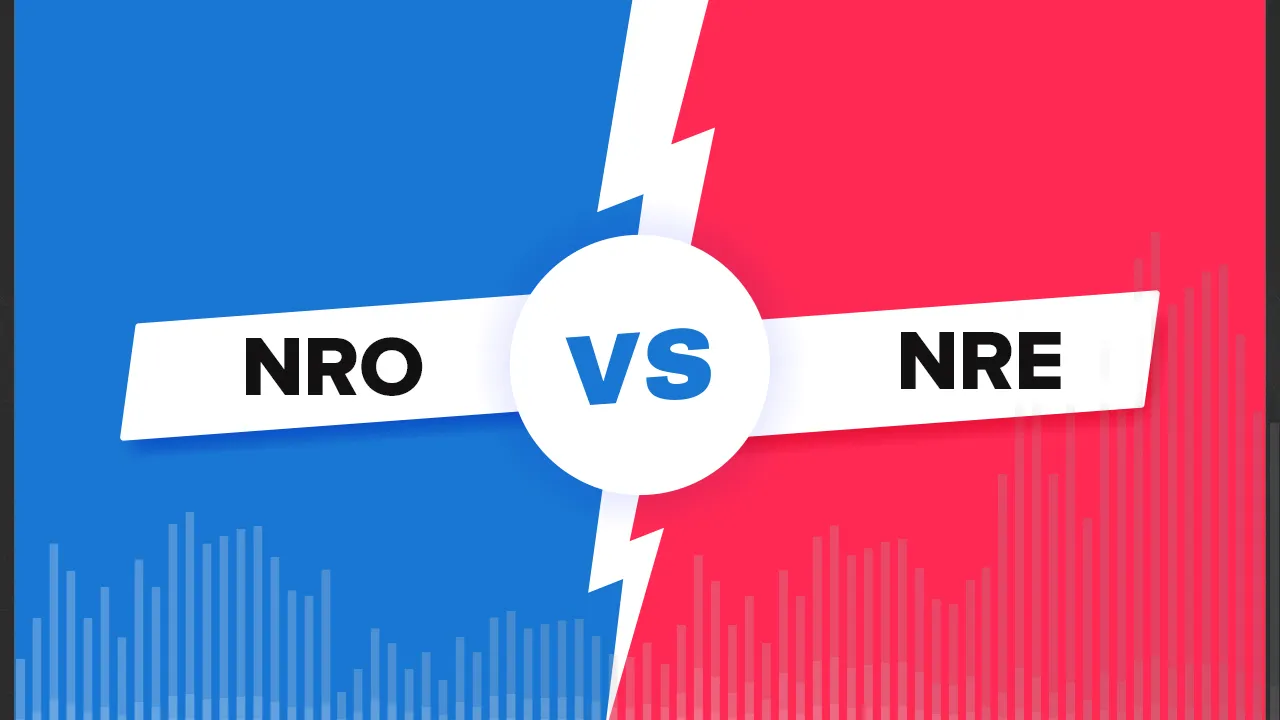Difference Between NRE and NRO Account
Introduction
If you’re an Indian living abroad, one of the first financial terms you’ll often hear is NRE and NRO account. But what do these really mean, and why do they matter? Understanding these two types of accounts can make managing your money between India and overseas much easier — and can even save you taxes. In this article, we’ll simplify the difference between NRE and NRO account, explain their benefits, and even link this financial knowledge with learning investment skills through the best online stock trading courses in India.
Learn the difference between NRE and NRO account, what is NRE and NRO account, and explore the best online stock trading courses in India.
What is an NRE Account?
NRE stands for Non-Resident External account. It’s designed for NRIs (Non-Resident Indians) who want to park their foreign earnings in India. You deposit your money in foreign currency, and it gets converted into Indian rupees (INR) upon deposit.
Key Benefits
- Funds are freely repatriable — you can transfer both principal and interest back to your foreign account.
- The interest earned is tax-free in India.
- Ideal for people who earn abroad but want to maintain financial ties in India.
What is an NRO Account?
The NRO (Non-Resident Ordinary) account is used for managing income earned in India, such as rent, dividends, pensions, or any other local earnings.
Features
- Funds are held in Indian rupees.
- Interest is taxable in India.
- Repatriation is limited and subject to government regulations.
It’s a convenient way for NRIs to handle all their India-based income sources.
Who Can Open an NRE or NRO Account?
You can open these accounts if you are an NRI, Person of Indian Origin (PIO), or an Overseas Citizen of India (OCI). Residents cannot open or operate these accounts unless their status changes to NRI.
A bank may require proof of NRI status, overseas address, and passport copies during account creation.
Purpose of NRE and NRO Accounts
Think of an NRE account as a bridge for your international income into India. In contrast, an NRO account is like a gateway for your Indian income while living abroad. Both accounts serve to separate the sources and ensure compliance with RBI regulations.
Key Difference Between NRE and NRO Account
| Criteria | NRE Account | NRO Account |
| Currency | Foreign income converted into INR | Indian income held in INR |
| Taxation | Tax-free interest | Interest is taxable in India |
| Repatriation | Fully repatriable | Restricted and subject to limits |
| Joint Account | Allowed only with NRI | Allowed with both NRI and resident Indian |
| Deposit Source | Foreign income only | Both Indian and foreign income |
Taxation Rules for NRE and NRO Accounts
Tax is one of the most significant factors in deciding between the two accounts.
- NRE account interest is exempt from Indian tax, making it more attractive for savings.
- NRO account interest is taxed at around 30% (plus cess) as per current rules.
If you earn both abroad and in India, using the right mix can help in smarter tax management.
Repatriation: Sending Money Back Abroad
Repatriation means transferring money from India to your foreign account.
- With NRE accounts, repatriation is fully allowed without restrictions.
- With NRO accounts, you can repatriate up to USD 1 million per financial year, subject to proof of funds and tax clearance certificates.
Joint Account Possibilities
You can open:
- NRE Accounts jointly only with another NRI/OCI.
- NRO Accounts jointly with either an NRI or a resident Indian, such as a parent or spouse.
That makes the NRO account more flexible for family-linked transactions.
Interest Rates and Currency Conversion
Banks offer attractive interest rates for both accounts, generally similar to domestic savings accounts. However, with NRE accounts, you gain or lose depending on currency conversion rates when depositing or repatriating.
If the Indian rupee strengthens, you earn more; if it weakens, you might get less in your home currency.
Which Account Should You Choose?
If most of your income comes from abroad: choose NRE. If you earn income within India (like rent or business income): choose NRO.
Many NRIs maintain both accounts — NRE for saving foreign earnings and NRO for managing Indian income.
Common Mistakes People Make
- Mixing Indian and foreign income in the same account.
- Ignoring tax implications.
- Not checking repatriation rules before transferring funds.
A quick tip: treat these accounts like two compartments in a wallet — one for your foreign cash and one for your Indian essentials.
How to Open NRE and NRO Accounts
You can easily open these accounts through major Indian banks’ NRI banking divisions online.
Steps include:
- Filling an online application form.
- Uploading passport, visa, and overseas address proof.
- Mailing self-attested documents, if required.
Banks like SBI, HDFC, and ICICI offer fully digital onboarding now.
Role in Investments and Stock Trading
Your NRE and NRO account also help in investing in Indian markets.
For example:
- NRE-linked Portfolio Investment Schemes (PIS) allow NRIs to buy/sell stocks.
- NRO accounts manage income like dividends or capital gains received in India.
Combining these with proper investment knowledge enhances financial efficiency.
Best Online Stock Trading Courses in India
To start investing wisely, consider upgrading your skills through a reliable online stock trading course. Here are a few reputable options:
- Trendy Traders Academy: beginner-friendly and best online stock trading courses in India.
- Coursera – Stock Market Investing Specialization: Ideal for in-depth learning.
- UpGrad’s Investment Banking & Trading Course: Great for professionals.
- NSE Academy Certifications: Industry-recognized and practical.
These courses link naturally with understanding how your NRE/NRO accounts integrate into managing investments.
Final Thoughts and Recommendations
Choosing between an NRE and NRO account isn’t hard once you understand their purpose. Both accounts serve different financial needs — one for your global income and one for your Indian income. If you plan to grow wealth strategically, manage taxation smartly, and perhaps even learn through stock trading courses, you’re setting yourself up for an empowered financial future.
FAQs
1. What is the full form of NRE and NRO account?
NRE stands for Non-Resident External, and NRO stands for Non-Resident Ordinary.
2. Can I transfer money from an NRO to an NRE account?
Yes, you can, but only after taxes are paid and within the RBI’s repatriation limit.
3. Do I pay tax on NRE account interest?
No, the interest earned on NRE accounts is tax-free in India.
4. Can a resident Indian become a joint holder in an NRE account?
No. Only another NRI or OCI can be a joint holder in an NRE account.
5. Which is better for saving foreign income — NRE or NRO?
An NRE account is better if you earn abroad as it is freely repatriable and tax-exempt.


